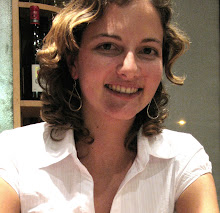
It’s three months later and I find myself back in Senegal, but in a very different role. I have opted to postpone my nascent journalistic career in order to take advantage of an opportunity to work for the UN World Food Program. I’m still torn over whether or not the move is justified, but in any case it is temporary. And in the mean time this is Hilary Heuler, unofficially reporting from Dakar, one of Africa’s most vibrant and cosmopolitan cities!
I was lucky enough to take over a flat immediately, a studio downtown for which I am paying only slightly less than what I would pay in California ($500/mo). This, I am told, is a steal for this area, but the price might be due to the fact that I’m in the onion packing center of West Africa. My street is continuously choked with trucks carrying onions, men moving onions, sacks of onions piling up on corners and rotten onions collecting in the gutters. Every morning is a chaos of produce. Walking to work is like walking through Costco, if all Costco sold was onions . . . and it was in the process of being demolished.
Used appliances also seem to be a popular commodity in my neighborhood. The electronics black market is a deceptively simple affair; on the surface, all you do is step out the door, approach the first guy you see on the street (probably sitting next to a table full of rusted hinges and cords belonging to who-knows-what-appliance), and ask him for what you want. On Saturday I was after an electric kettle and a UK/Africa adaptor. My guy, ElHadj, offered me a seat, and within minutes both items were recovered from the bowels of the market and sold with a minimum of haggling. I walked home feeling smug, but it was the beginning of a long afternoon.
First the kettle didn’t work (at all), so I went back and had it replaced. ElHadj didn’t apologize, but he did very good-naturedly send off his boy to find another one, which was then tested for me using the wall plug of a nearby shop. Then the adaptor turned out to be the wrong type of adaptor altogether, and didn’t fit my plugs at home at all. This problem was a bit more difficult to solve, and when ElHadj tried to explain the problem to his runners they produced extension cords, multi-outlet flats and other appliances with cords attached. They did finally find me the appropriate adaptor, which fit my wall. But when I got home I found that it didn’t work either.
ElHadj is a nice guy, and an honest businessman. He chuckled at my electronic woes, blamed the manufacturers, and blamed his middle-men each time they plunged into Dakar’s back alleys for more. But in the end my kettle, for which I paid $16 (after four trips back and forth), turned out to be a pretty good deal – I later found that the expat supermarket was selling the same thing for $50.
As usual things work out in the end, but rarely the way you expect them to.
I was lucky enough to take over a flat immediately, a studio downtown for which I am paying only slightly less than what I would pay in California ($500/mo). This, I am told, is a steal for this area, but the price might be due to the fact that I’m in the onion packing center of West Africa. My street is continuously choked with trucks carrying onions, men moving onions, sacks of onions piling up on corners and rotten onions collecting in the gutters. Every morning is a chaos of produce. Walking to work is like walking through Costco, if all Costco sold was onions . . . and it was in the process of being demolished.
Used appliances also seem to be a popular commodity in my neighborhood. The electronics black market is a deceptively simple affair; on the surface, all you do is step out the door, approach the first guy you see on the street (probably sitting next to a table full of rusted hinges and cords belonging to who-knows-what-appliance), and ask him for what you want. On Saturday I was after an electric kettle and a UK/Africa adaptor. My guy, ElHadj, offered me a seat, and within minutes both items were recovered from the bowels of the market and sold with a minimum of haggling. I walked home feeling smug, but it was the beginning of a long afternoon.
First the kettle didn’t work (at all), so I went back and had it replaced. ElHadj didn’t apologize, but he did very good-naturedly send off his boy to find another one, which was then tested for me using the wall plug of a nearby shop. Then the adaptor turned out to be the wrong type of adaptor altogether, and didn’t fit my plugs at home at all. This problem was a bit more difficult to solve, and when ElHadj tried to explain the problem to his runners they produced extension cords, multi-outlet flats and other appliances with cords attached. They did finally find me the appropriate adaptor, which fit my wall. But when I got home I found that it didn’t work either.
ElHadj is a nice guy, and an honest businessman. He chuckled at my electronic woes, blamed the manufacturers, and blamed his middle-men each time they plunged into Dakar’s back alleys for more. But in the end my kettle, for which I paid $16 (after four trips back and forth), turned out to be a pretty good deal – I later found that the expat supermarket was selling the same thing for $50.
As usual things work out in the end, but rarely the way you expect them to.

1 comment:
Thanks Roy! Good luck yourself!
Post a Comment